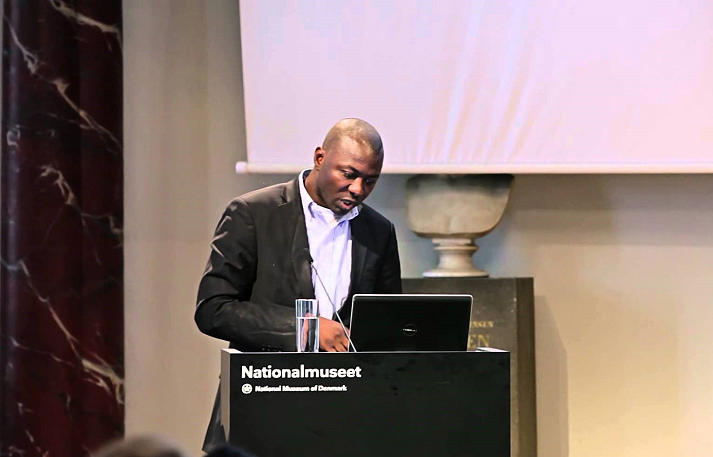
Take legal action against ECG — ACEP
The Executive Director of the Africa Centre for Policy (ACEP), Dr Mohammed Amin Adam, has urged post-paid consumers of electricity who do not receive their electricity bills to take legal action against the Electricity Company of Ghana (ECG).
Given that the legislative instrument (LI) 1816 of 2005 on electricity supply and distributions clearly states that the supplier shall issue an electricity bill every month to the customer, he said it was crucial for the citizenry to test this act in court.
Mr Adam spoke to the Graphic Business at an event in Accra and said taking legal action against ECG would put the power distributor on its toes and also ensure that the consumer was served with the needed efficiency.
“All of us must become watchdogs over our service providers in the country. Laws in Ghana give citizenry the authority to take legal action against the ECG if it fails to provide consumers with bills of payment at the end of the month and the senior most official of the company will go to jail for failing to serve the customer diligently,” he stressed.
Criticism
The ECG has come under criticisms lately from consumers in the country for the power ‘s failure to supply post-paid customers with bills of payment.
Most of the post-paid customers of the ECG, especially those in Accra, have complained about the failure of the power supplier to provide them with bills of payment for several months.
The LI on electricity supply and distributions clearly states that the supplier cannot recover the cost of that service unless the delay in the billing occurred without negligence on the part of the supplier or due to the customer’s action.
The Public Utility Regulatory Commission (PURC) has subsequently explained that the supplier of electricity could not disconnect supply to consumers when they failed to provide them with a bill of payment.
Launch
The Africa Centre for Policy has launched an initiative to involve the citizenry in the process of making policies for the petroleum and energy sector in the country.
Dubbed “Citizens Agenda for Energy Sector Development,” the initiative is aimed at using democratic elections as an instrument for generating policy reforms, building political consensus of policies and holding elected officials accountable for their promises.
Dr Adam said the launch in Ghana would precede the next one in Sierra Leone and Kenya in 2017.
“Also known as ‘Citizens Energy Manifesto,’ it is our flagship elections project aimed at holding our governments accountable, informing and educating citizens on alternative policies for our petroleum and energy sector,” he said.
The platform
The project consists of a two-level activity. The first involves citizens’ forum in the Northern, Ashanti and Western regions to provide a platform for citizens to indicate their priorities in the petroleum and energy sector.
The second is also an expert panel on manifesto proposals of the parties in the petroleum and energy sector in which seasoned experts will be assembled to publicly evaluate the feasibility of the manifesto proposals of the political parties.
Giving further explanation, Dr Adam said the views which would be collated from the processes would become the Citizens Agenda for Energy Sector Development in Ghana or the Citizens Energy Manifesto, and would be presented to the political parties.
“During the presentation of the manifesto, political parties are expected to declare their commitments to the citizens’ energy agenda. Therefore, with a social contract established through this process, Ghanaians have a basis to evaluate the performance of their government after the general election,” he added.
Oil and gas sector
TEN is expected on stream in the third quarter of this year; Sankofa will produce oil in 2017 and gas in 2018. These projects will increase the production of crude oil to an estimated 250,000 barrels a day, which will double petroleum revenue to the government at current levels of crude oil pride.
Dr Adam urged Ghanaians to engage the political parties to scrutinise them on how best the revenues could be managed after a government was elected in November.
“Given the current level of inactivity on Ghana’s exploration map, we are worried about the future of the oil industry. We are currently depleting reserves without replacing them at the same level, as oil companies hold inactive petroleum licences,” he said.
Energy sector
There are major developments in the energy sector, which the next government will be confronted with, and irrespective of the party that wins the 2016 general election, the challenge will be the same.
This, therefore, requires pragmatic and practical policies to correct the imbalances in the sector.
The executive director cited the type of fiscal regime Ghana should adopt for granting oil and gas rights as one of the key issues that concerns the citizenry.
He also noted that the power sector challenges had formed a major part of the policy discourse over the past few years. The two most important issues in this sector being financing and technical/operational efficiency of utilities.
The Energy Commission estimates that the utilities will require about US$1.18 billion to purchase fuel in 2016. This will increase to about US$1.5 billion in 2017, if indigenous and imported gas supply does not improve.
 Click the link to read your copy.
Click the link to read your copy.